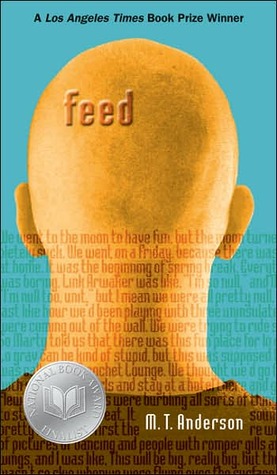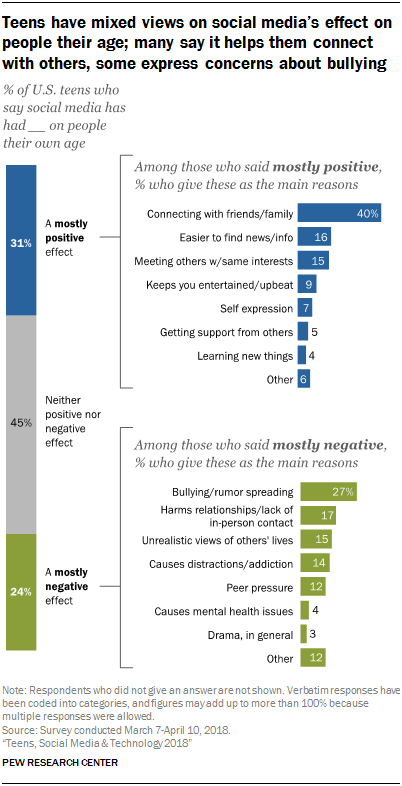#IbelieveinRussianhackers
So, let me start by sharing that I discovered something REALLY weird. I know that few people read my stupid summer reading blog, but I happened to look at the number of views of two of my posts, and they were pretty high! My initial thought was, "Wow, people might actually care about books." Then, I clicked on the blog feature that allows you to see where people are reading, and Russia lit up like a traffic light on the map. Then, I thought about what the difference was between these highly viewed posts and two more recent posts... upon reflection, I remembered that I shared these highly viewed posts on Facebook.
Yeah, so as I pondered all the potential violations that might occur in terms of my privacy because Russians have access to my data, I decided to pick up Feed by M.T. Anderson, which I had been meaning to read for a while. The premise is that people in the future all have internet feeds implanted in them, allowing 24-7 connection, and in the midst of this, a teen boy (Titus) and his friends are "hacked" while partying on the moon when someone touches them, causing them to black out. (Is this akin to having someone spike your drink?) Anyway, they end up in the hospital until their feeds can be restored...
At this time, Titus meets Violet, a poor girl with a college professor for a dad, who begins to question their reliance on the feed. At one point, the teens go to the mall and look at crazy items to try to throw off the algorithm that recommends products to them. I felt chills as I thought of every time I post a picture of my toddler on Facebook, only later to see Pampers advertisements on my stream.
I was a bit bothered by the mindless profanity in the book, but then again, the author was trying to make a point about how words fell by the wayside when people relied on the feed. Instead of understanding complex adjectives or metaphor, people used phrases like "big tired" and "null" to describe exhaustion and (something being) lame, respectively. Everything was "stuff," and if people wanted to share experiences, they could simply share a kind of replay of what was going on in their mind, eliminating the need to try to convey experience. (Like this chilling Black Mirror episode from season 1!)
While certainly this book was more in line with dystopian stories like Ready Player One (my husband tells me that the movie, which was great, was very different from the book), with corporations using technology to control and profit from the masses, it also reminded me of another book I read this summer.
#16thingsIthoughtweretrue by Janet Gurtler, which was more of a teen romance/drama, prominently featured the impact of technology.
The premise of this story is that Morgan's mom falls gravely ill and finally reveals the name of her father, whom she has never met. If this wasn't weird enough, it also turns out that Morgan is the star of a viral video, which her friend posted to Youtube, so people all stare and talk smack about her. Ironically, because she doesn't have any friends, she turns to twitter to connect with people, trying to gain followers...with a goal of 5,000 by the end of the summer.
Along the way there is a budding romance, a road trip, and new friends made, all on Morgan's quest to meet her father and show him what he missed out on by not being part of her life (#idontthinkshethoughtthatthrough). There are many parts of this novel that are incredibly predictable, the characters lack depth, and the lessons seemed obvious, but I enjoyed the way the author showed the complexity of teen relationships with technology, especially how there is pressure to put on a perfect face to the world via social media--and how even those looking to escape from it can't seem to disconnect.
Granted, while a Pew Research study shows that most teens today use instagram and snapchat more than twitter, I think the trouble Morgan has disconnecting and putting down her phone is something many teens can relate to. I also think it shows an important lesson, which I know teens are TOLD all the time, but which doesn't always sink in, about how just one stupid post to the internet can haunt them. I almost wished the novel ended with an epilogue about Morgan applying to college and being rejected because there is permanent footage of her dancing around in underwear (to find out the even more embarrassing details, you have to read the book).
So here is a question both of these books left me with: can we unplug? Is there a path forward without the logistical issues and pressures that access to social media and digital connection? I'd like to know your thoughts!
Happy reading!
#16thingsIthoughtweretrue by Janet Gurtler, which was more of a teen romance/drama, prominently featured the impact of technology.
The premise of this story is that Morgan's mom falls gravely ill and finally reveals the name of her father, whom she has never met. If this wasn't weird enough, it also turns out that Morgan is the star of a viral video, which her friend posted to Youtube, so people all stare and talk smack about her. Ironically, because she doesn't have any friends, she turns to twitter to connect with people, trying to gain followers...with a goal of 5,000 by the end of the summer.
Along the way there is a budding romance, a road trip, and new friends made, all on Morgan's quest to meet her father and show him what he missed out on by not being part of her life (#idontthinkshethoughtthatthrough). There are many parts of this novel that are incredibly predictable, the characters lack depth, and the lessons seemed obvious, but I enjoyed the way the author showed the complexity of teen relationships with technology, especially how there is pressure to put on a perfect face to the world via social media--and how even those looking to escape from it can't seem to disconnect.
Granted, while a Pew Research study shows that most teens today use instagram and snapchat more than twitter, I think the trouble Morgan has disconnecting and putting down her phone is something many teens can relate to. I also think it shows an important lesson, which I know teens are TOLD all the time, but which doesn't always sink in, about how just one stupid post to the internet can haunt them. I almost wished the novel ended with an epilogue about Morgan applying to college and being rejected because there is permanent footage of her dancing around in underwear (to find out the even more embarrassing details, you have to read the book).
So here is a question both of these books left me with: can we unplug? Is there a path forward without the logistical issues and pressures that access to social media and digital connection? I'd like to know your thoughts!
Happy reading!



No comments:
Post a Comment